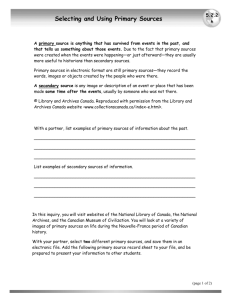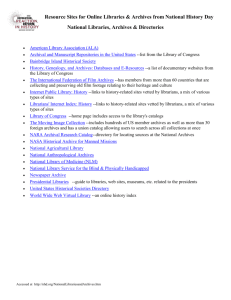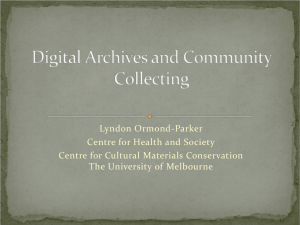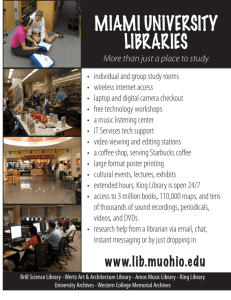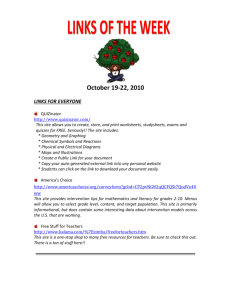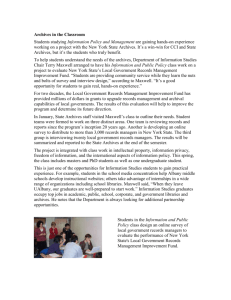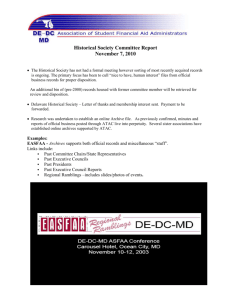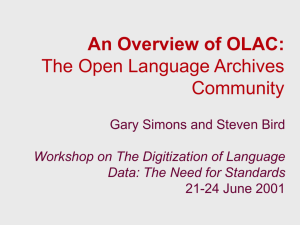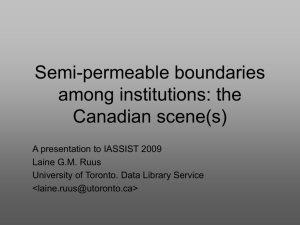512:582 Records and Archives Management Libraries and archives
advertisement
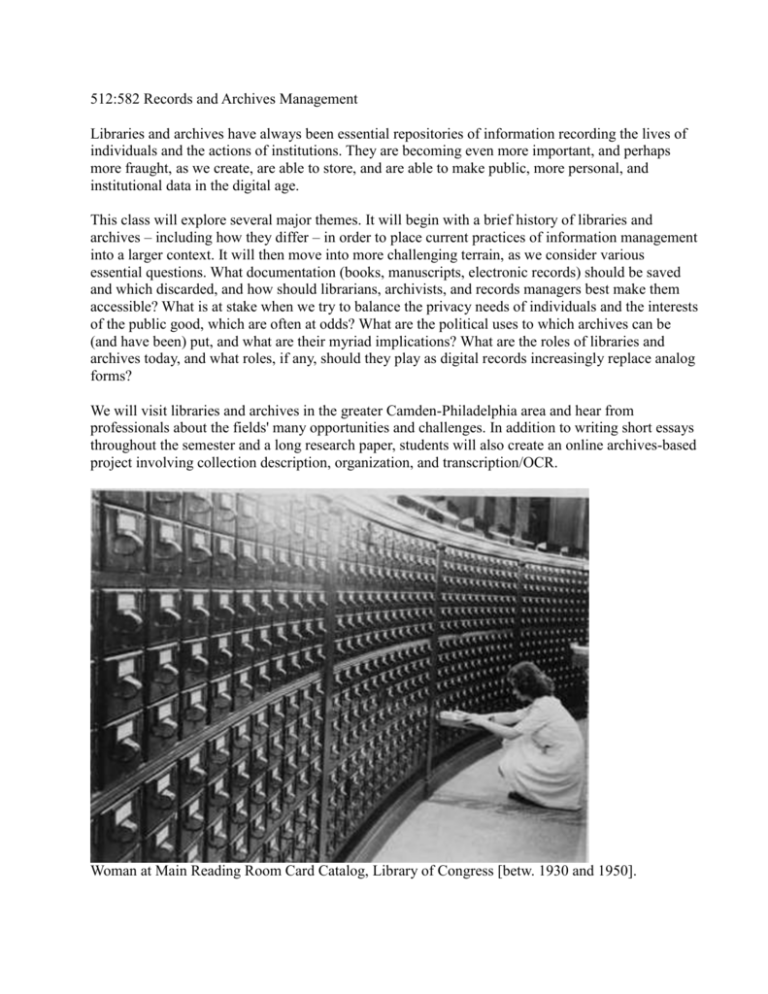
512:582 Records and Archives Management Libraries and archives have always been essential repositories of information recording the lives of individuals and the actions of institutions. They are becoming even more important, and perhaps more fraught, as we create, are able to store, and are able to make public, more personal, and institutional data in the digital age. This class will explore several major themes. It will begin with a brief history of libraries and archives – including how they differ – in order to place current practices of information management into a larger context. It will then move into more challenging terrain, as we consider various essential questions. What documentation (books, manuscripts, electronic records) should be saved and which discarded, and how should librarians, archivists, and records managers best make them accessible? What is at stake when we try to balance the privacy needs of individuals and the interests of the public good, which are often at odds? What are the political uses to which archives can be (and have been) put, and what are their myriad implications? What are the roles of libraries and archives today, and what roles, if any, should they play as digital records increasingly replace analog forms? We will visit libraries and archives in the greater Camden-Philadelphia area and hear from professionals about the fields' many opportunities and challenges. In addition to writing short essays throughout the semester and a long research paper, students will also create an online archives-based project involving collection description, organization, and transcription/OCR. Woman at Main Reading Room Card Catalog, Library of Congress [betw. 1930 and 1950].
